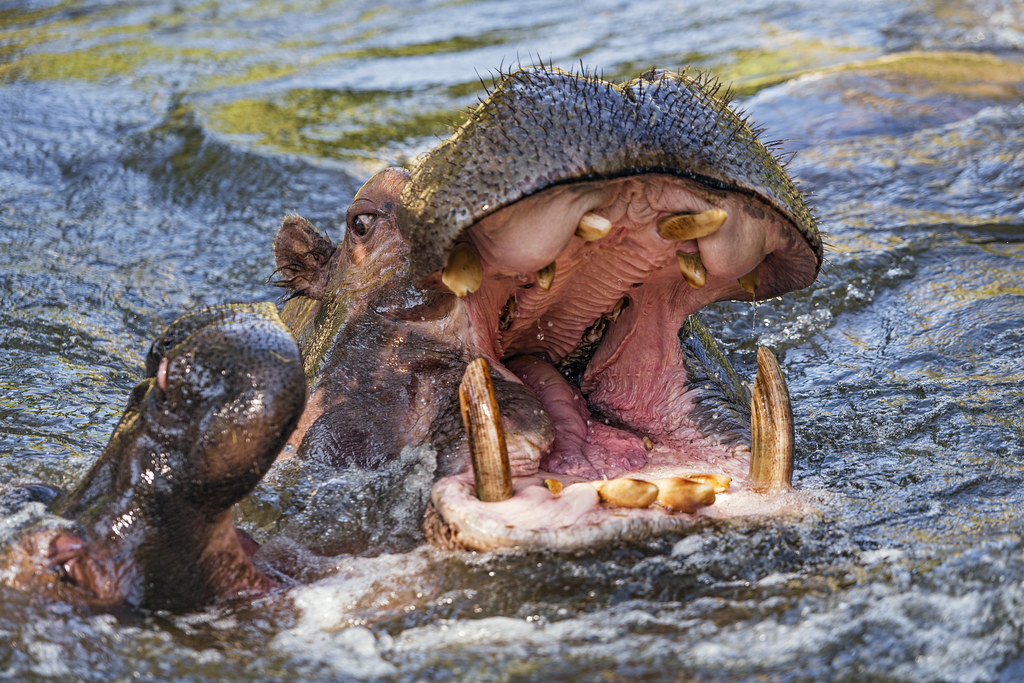Seventy hippos descended from the original four owned by Pablo Escobar will be transported from Colombia to overseas sanctuaries. There are a reported 130-160 in the country due to the hippos that the former cocaine kingpin housed in his exotic animal collection. The hippos have now multiplied and expanded beyond his ranch of Hacienda Napoles. The non-native animals are said to be a dangerous invasive species that threatens wildlife and humans in Colombia.
The move will cost Colombia $3.5 million, according to CNN, which reports:
“It will form part of a deal that the local Antioquia government signed with various institutions, including the Colombian Agricultural Institute, the Colombian Air Force and the Ostok Sanctuary in Mexico where 10 hippos will be transported, a statement released on Wednesday said.
A sanctuary in India will provide a new home for the other 60 hippos since it is impossible to transport them back to their native Africa and risks upsetting the local ecosystem there.
The deal will allocate resources to build boxes and cover air transport costs for the hippos, whose population has boomed despite the efforts of authorities to control it using castrations and ‘shots’ of contraceptive darts.”
After Escobar was killed in 1993, the authorities were able to relocate most of the animals, except for the hippos, due to the difficulty of moving them. A study in the journal Nature warned their numbers could balloon to 1,500 within two decades.
The hippos are being moved to Mexico and India because the goal is “to take them to countries where these institutions have the capacity to receive them, and to (home) them properly and to control their reproduction,” according to Governor Aníbal Gaviria. It was not possible to send them to their native land of Africa due to the harm they could impose. “Every time we move animals or plants from one place to the other, we also move their pathogens, their bacteria and their viruses. And we could be bringing new diseases to Africa, not just for the hippos that are out there in the wild, but new diseases for the entire African ecosystem that hasn’t evolved with that type of disease,” said María Ángela Echeverry, professor of Biology at the Javeriana University.



